All Formats & Editions
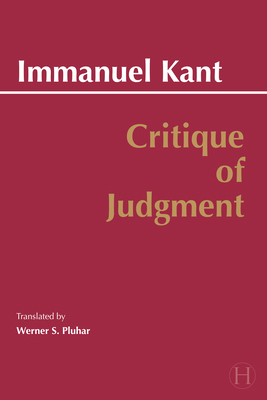
Critique of Judgment

Critique of Judgement
A new edition of Immanuel Kant 's influential philosophical treatise Critique of Judgement , origi nally published in 1790, constituting Kant's major contributions to the fields of aesthetics and teleology. Critique of Judgement is the third of Kant's critiques and is divided...
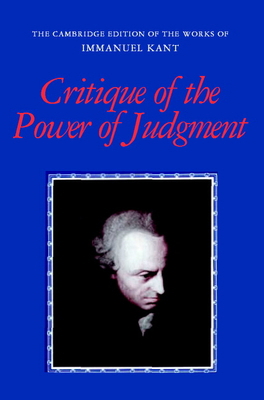
Critique of the Power of Judgment
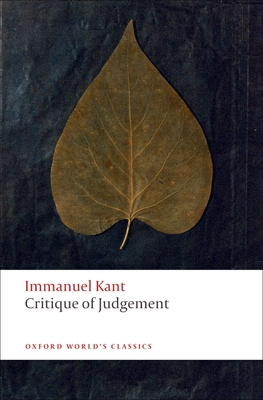
Critique of Judgement
In the Critique of Judgement, Kant offers a penetrating analysis of our experience of the beautiful and the sublime. He discusses the objectivity of taste, aesthetic disinterestedness, the relation of art and nature, the role of imagination, genius and originality, the limits...
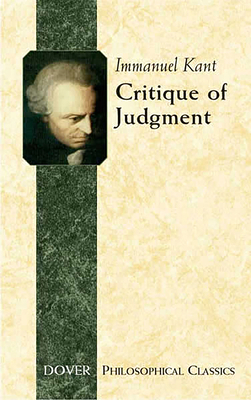
Critique of Judgment
This 1790 polemic by one of philosophy's most important and influential figures attempts to establish the principles that support the faculty of judgment. Kant's third critique -- after Critique of Practical Reason and Critique of Pure Reason -- remains one of the most important...
![Kritik der Urteilskraft [German] 3787317759 Book Cover](https://i.thriftbooks.com/api/imagehandler/l/9511DF31C89DF5079B1F349C9B43EFC1B85CDA51.jpeg)
Kritik der Urteilskraft [German]
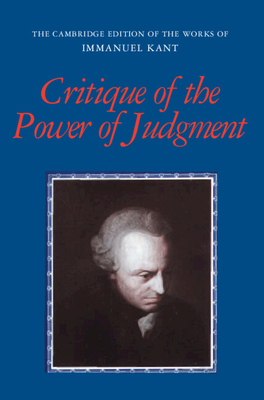
Critique of the Power of Judgment
The Critique of the Power of Judgment (a more accurate rendition of what has hitherto been translated as the Critique of Judgment) is the third of Kant's great critiques following the Critique of Pure Reason and the Critique of Practical Reason. This translation of Kant's masterpiece...
![Kritik der Urteilskraft: Die dritte Kritik (vor... [German] 802688731X Book Cover](https://i.thriftbooks.com/api/imagehandler/l/D9735CDF4E1C28B43D85BEB996F5A9C6943A6FB1.jpeg)
Kritik der Urteilskraft: Die dritte Kritik (vor... [German]
Die Kritik der Urteilskraft (KdU) ist Immanuel Kants drittes Hauptwerk nach der Kritik der reinen Vernunft und der Kritik der praktischen Vernunft, erschienen 1790. Sie enth lt in einem ersten Teil Kants sthetik (Lehre vom sthetischen Urteil) und im zweiten Teil die Teleologie...
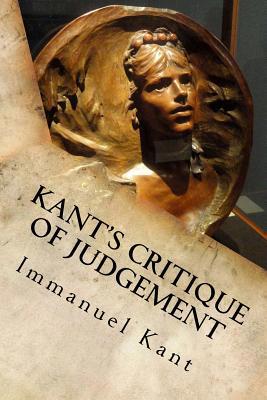
Kant's Critique of Judgement
The Critique of Judgment (German: Kritik der Urteilskraft, KdU), also translated as the Critique of the Power of Judgment, is a 1790 philosophical work by Immanuel Kant. Sometimes referred to as the third Critique, the Critique of Judgment follows the Critique of Pure Reason...
![Kritik Der Reinen Vernunft (Werke 2) [German] B005E019O2 Book Cover](https://static.thriftbooks.com/images/noimage-big.jpg)
Kritik Der Reinen Vernunft (Werke 2) [German]
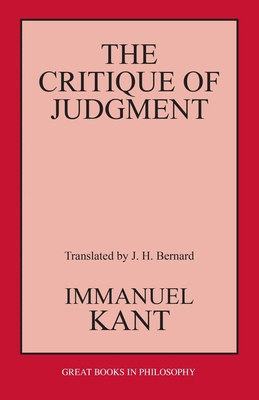
Critique of Judgment
Considered by Kant to be the culmination of his critical philosophy, "The Critique of Judgement" was the last work in the trilogy begun with "The Critique of Pure Reason" and continued with "The Critique of Practical Reason". In this work Kant seeks to establish the a priori...
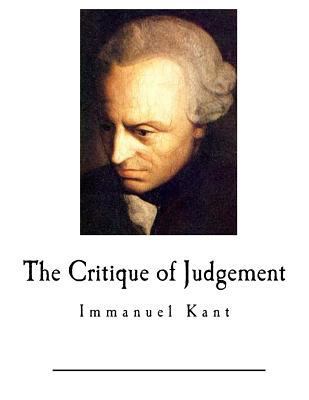
The Critique of Judgement: Immanuel Kant
![Kritik Der Urteilskraft Werkausgabe [German] 3518276573 Book Cover](https://m.media-amazon.com/images/I/31F3XJY-WeL._SL500_.jpg)
Kritik Der Urteilskraft Werkausgabe [German]
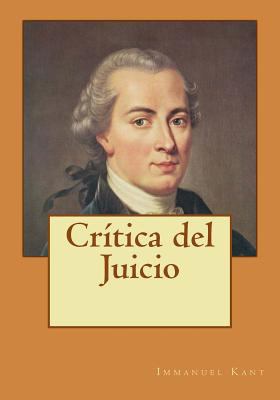
Crítica del Juicio
La Cr tica del Juicioa o de la facultad de juzgarb\ o del discernimiento es la ltima de las tres grandes cr ticas escritas por Immanuel Kant, publicada en 1790 y reeditada dos veces m s en vida del autor.La Cr tica de la raz n pura determin , que el entendimiento contiene principios...
![Kritik der reinen Vernunft - 2. Auflage: Zweite... [German] 3640251016 Book Cover](https://i.thriftbooks.com/api/imagehandler/l/DDA535535ADCDC17DF0E1097F4623592E6BEAA21.jpeg)
Kritik der reinen Vernunft - 2. Auflage: Zweite... [German]
Klassiker aus dem Jahr 2009 im Fachbereich Philosophie - Philosophie des 17. und 18. Jahrhunderts, Sprache: Deutsch, Abstract: I. Von dem Unterschiede der reinen und empirischen Erkenntnis Da alle unsere Erkenntnis mit der Erfahrung anfange, daran ist gar kein Zweifel; denn...
![Critique de la Raison Pure. [Volume 2] (Éd.1869) [French] 2012534511 Book Cover](https://i.thriftbooks.com/api/imagehandler/l/7AA0EC6E2697FEE881BA216CE0810C7D9A24239E.jpeg)
Critique de la Raison Pure. [Volume 2] (Éd.1869) [French]
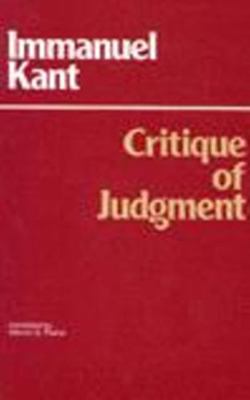
Critique of Judgment
In THE CRITIQUE OF JUDGMENT (1790), Immanuel Kant (1724-1804) seeks to establish the a priori principles underlying the faculty of judgement, just as he did in his previous critiques of pure and practical reason. The first part deals with the subject of our aesthetic sensibility;...
![Kritik der Urteilskraft [German] 3787319484 Book Cover](https://m.media-amazon.com/images/I/21JgfqCz3CL._SL500_.jpg)
Kritik der Urteilskraft [German]
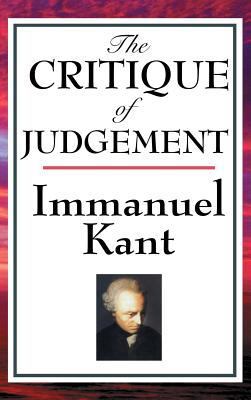
The Critique of Judgement
Philosophy may be said to contain the principles of the rational cognition that concepts afford us of things (not merely, as with logic, the principles of the form of thought in general irrespective of the objects), and, thus interpreted, the course, usually adopted, of dividing...
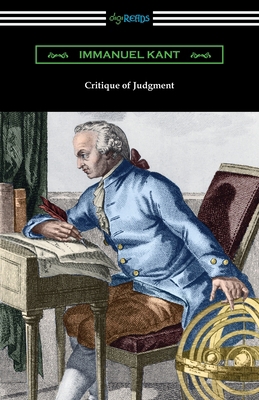
Critique of Judgment
German philosopher and influential 18th century late Enlightenment thinker Immanuel Kant wrote "Critique of Judgment" in 1790 to solidify his ideas on aesthetics. Often referred to as the "third critique", it follows Kant's "Critique of Pure Reason," published in 1781, and...
![Werkausgabe, Bd.3-4, Kritik der reinen Vernunft... [German] 3518276557 Book Cover](https://m.media-amazon.com/images/I/41y-eVpsp5L._SL500_.jpg)
Werkausgabe, Bd.3-4, Kritik der reinen Vernunft... [German]
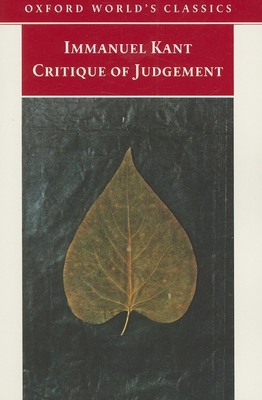
Critique of Judgement (Oxford World's Classics)
'beauty has purport and significance only for human beings, for beings at once animal and rational'In the Critique of Judgement (1790) Kant offers a penetrating analysis of our experience of the beautiful and the sublime, discussing the objectivity of taste, aesthetic disinterestedness,...
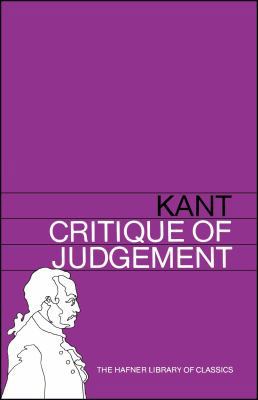
Critique of Judgement
A refreshing approach to the study of major Western philosophers. Introductory essays by noted scholars enliven each volume with insights into the human side of the great thinkers, and provide authoritative discussions of the historical background, evolution, and importance of...
![Critica del Juicio (Spanish Edition) [Spanish] 9500378396 Book Cover](https://i.thriftbooks.com/api/imagehandler/l/0751028886943A2EF494DFBB04FF4624CBCB228F.jpeg)
Critica del Juicio (Spanish Edition) [Spanish]
![Kritik Der Reinen Vernunft (Werke, Vol. 2) (Ger... [German] 3895080713 Book Cover](https://m.media-amazon.com/images/I/41KXJQ45ZEL._SL500_.jpg)



